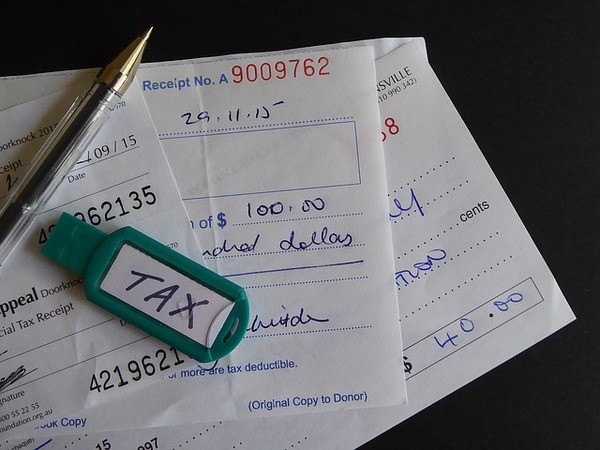The average American will pay approximately $10,000 in taxes every year. Of course, this number varies by income level, and the taxes often seem high no matter which rate applies to your particular situation. But, what if there was a way to significantly decrease your taxes owed by reducing your taxable income without changing your spending habits? Forming your own business can actually obtain this goal for you, with very few adjustments to your daily life.
Most people make the mistake of assuming that only certain people can start their own businesses. They may assume that only the extremely wealthy can create a legitimate LLC or corporation. You may also have the mistaken belief that you must be entirely self-employed to have your own business. In fact, many people that own and operate a business also have traditional, often full-time employment as well.
You can take advantage of the many tax benefits of forming your own business, just like millions of other Americans do every year. In fact, it may be the most useful wealth management strategy that you make for yourself.

Business Tax Advantages
Certain credits and deductions are available to companies that are simply not open to individual taxpayers. However, these deductions and credits, while valuable, are not the major source of tax savings for most businesses. Instead, the focus is on the different methods by which a business is taxed.
Companies report their income on their tax return first. Then, unlike an individual taxpayer, businesses state their expenses as well. Expenses are subtracted from income to derive the taxable amount. Essentially, then, a business is only taxed on its “take-home” pay.
If this structure were to apply to an individual, it would be like taking out your expenses related to food, housing, and clothing before determining your taxable wages. Obviously, if you are permitted to deduct these costs, your taxable income would be significantly less. That is exactly what is happening for a business—resulting in a huge tax reduction.
Businesses that operate at a loss have no taxable income. In fact, if you have a regular “9 to 5” job and a side business, the losses associated with your side business may decrease your taxes owed from your traditional employment.
Of course, forming a business also has the added benefit of asset protection if you create a formal entity like a corporation.
What Qualifies as a Business from a Tax Standpoint?
The IRS has a deliberately broad definition of which activities can be considered a business. The test is not focused on whether you have a corporate structure or employees, for example. Instead, the definition considers the purpose of the activity in general. The standard defines a business as an activity that you engage in with the goal of making a profit. That does not mean, however, that you must meet this target to be considered a valid business for tax purposes.
The IRS keeps a close watch for the distinction between a hobby and a legitimate business. A hobby has no goal of making a profit while a business should. The failure to classify the activity correctly can result in an audit. The IRS will consider whether your business has ever made a profit in determining if it should be regarded as a hobby or business. As a rule, it will look at the past three years of your tax returns in making its decision.

Turning Activities into a Legitimate Business
Because the IRS’s definition of a business is really only “an activity carried out with the purpose of making a profit,” many, many activities can qualify as a business. Consider any of the activities that you do for enjoyment or fun that could be considered a business based on this definition. Examples may include:
- Freelance consulting work
- Breeding animals
- Repairing or updating cars
- Creating artwork
- Daycare work
- Knitting or sewing
- Real estate work (including buying, selling, or managing property)
- Sales (of virtually any kind)
- Farming
- Writing
- Woodworking
- Producing or creating online content (videos, writing, voiceovers, etc.)
- Personal trainers
- Photography
Turning your activities into a business can open new doors in terms of tax reduction strategies and tax planning. It may just require some creativity to get started.
Business Expenses and Tax Deductions
Depending on your type of activity, you may be able to reduce your taxable income by deducting legitimate business expenses significantly. Imagine, for example, you have decided to sell handmade jewelry. The following is just a basic list of some of the expenses that you may be able to use to decrease your taxable income from this business.
- Mileage to and from private showings, events, or to purchase supplies
- Fees related to booths at local events
- Costs related to inventory to produce your jewelry
- The computer, printer, and other office necessities required to track your inventory and income
- Your business phone (or a portion of your personal phone)
- Related travel expenses such as entertainment and food
- Professional development training for sales, management, or jewelry making
If you keep your inventory at your home, you can also deduct expenses related to the space it is taking up. Your home office may also be a valid expense even if you keep no inventory at your home.
With a business, regular trips to the grocery store can be tacked onto your mileage amount, assuming you also pick up inventory or supplies for your business as well. A little creativity can go a long way to decrease your taxable income. These opportunities simply would not be available if you did not have your own business.
Protect Wealth Academy offers many tips like these and so much more in their online resource center. You can learn to utilize your business structure to the fullest and reap all of the tax benefits associated with it. Sign up for a free membership today.
